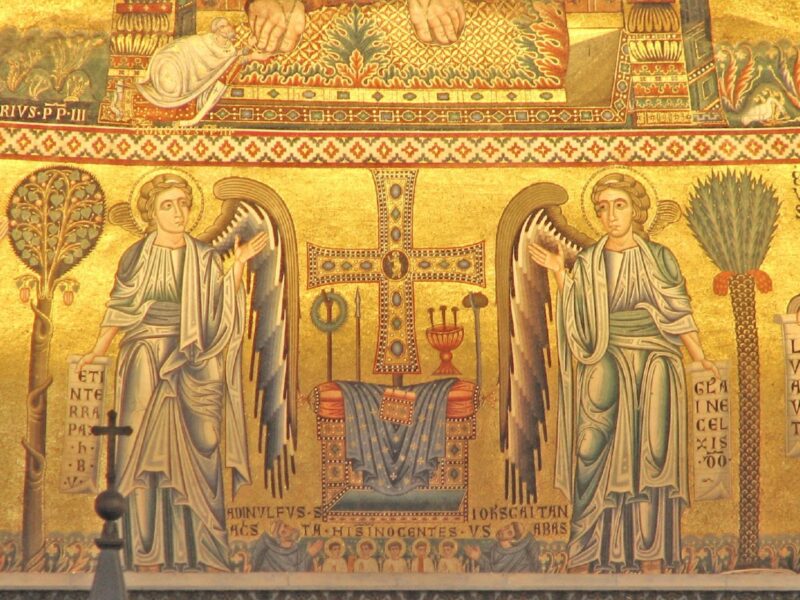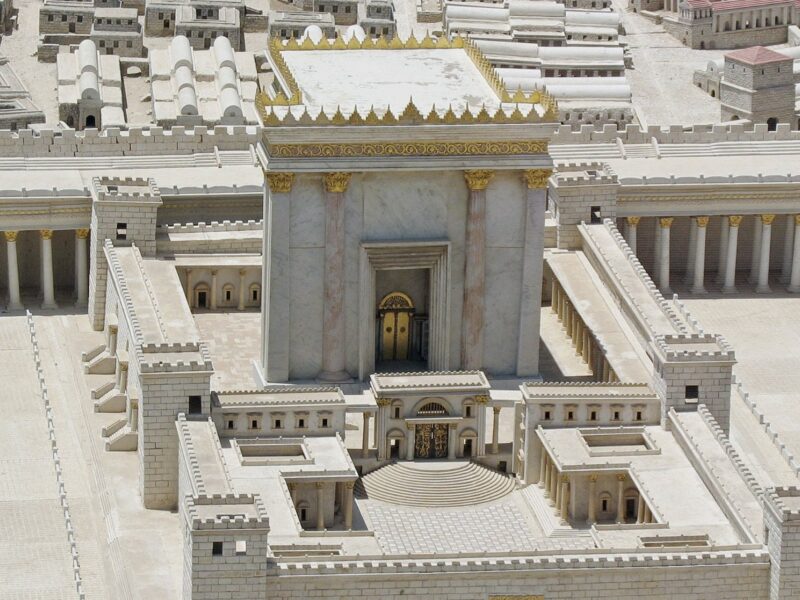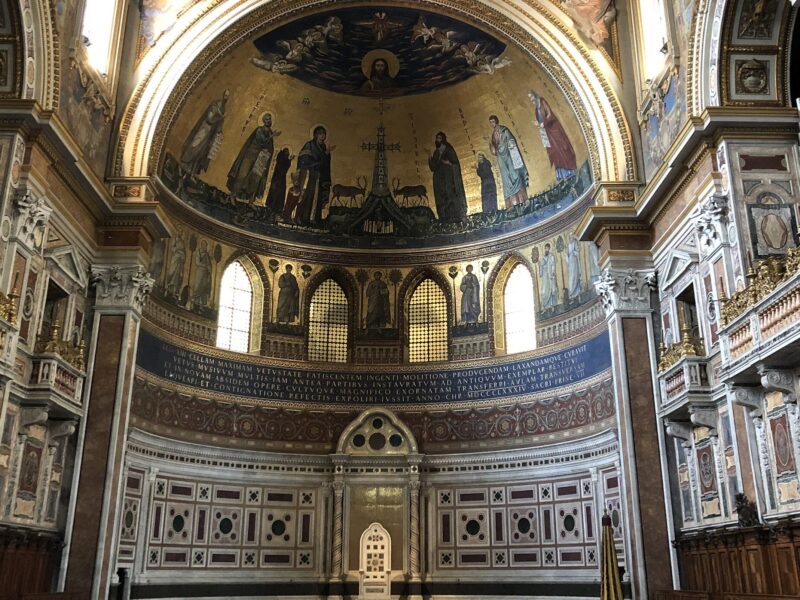
By Way of Mary
Solemnity of Mary, Mother of God. Fr Robert Ombres helps us to see how Mary is Mother to all who belong to her son.
What a beginning to the year it is, to begin with Mary as mother. We were all born of a mother, and many millions of women are mothers. Today we are to think about and celebrate Mary as the Mother of God. This is an extraordinary leap out of the normal biological order of things, but it is also connected to motherhood as we know it.
Today is a radiant moment in our liturgical and devotional life, but it is not science-fiction or an escape from reality. It’s just that what is real and true has been expanded by God. Whatever our own personal experience has been as sons and daughters, we need to connect with and be sustained by Mary’s motherhood, as mother of God and our mother.
At the human, biological level Mary is our precious link to the incarnate Son of God, Jesus Christ, whose birth some 2000 years ago we recall at Christmas. As Jesus did not have a biological father, did not have a wife to be one flesh with, did not have children, then Mary leads us uniquely and constantly to Christ’s incarnation, his taking on of flesh and blood. Far from being a distracting alternative to Christ, devotion to Mary attaches us more firmly to her Son. He is no alien visitor from outer space, disconnected from our humanity.
In the order of grace, something our biological nature could not give us of itself, she is our mother. Christians have found many ways of saying this, beginning of course with meditating and experiencing the words said by Jesus while on the cross. St John records for us the abiding relationship between Mary and the beloved disciple, who stands for all the believers that were to come. We treasure those words. and consider ourselves blessed by them: ‘Seeing his mother and the disciple whom he loved, standing near her, Jesus said to his mother, ‘Woman, this is your son’. Then to the disciple he said, ‘This is your mother’.’
Mary is given as our mother to reverse the consequences of what happened through our primordial mother, Eve: one delightful word-play in Latin thought of ‘Ave’, the angelic greeting to Mary, precisely as the reversal of the name ‘Eva’. Mary stands among us, creatures in need of redemption, yet supremely without sin and full of faith. No goddess she. Mary can be turned to and relied on to intercede with God on our behalf, motherly in her protective care. It is a great and true consolation in life, whatever other experiences of motherhood we may or may not have had, to have Mary the mother of Jesus as also our mother in a different yet real sense.
Mary, who was through her motherhood and shared life was so intimately bound up with Christ, continues also in bodily ways as well as spiritually to be uniquely close to him. She is assumed into heaven, body and soul. Yet again, and from a different angle, through her we are brought close to the fullness of her Son.
Centuries ago the Church proclaimed that Mary is truly ‘Mother of God’. We believe that the One she conceived as man by the Holy Spirit, who truly became her Son according to the flesh, was none other than the Father’s eternal Son, the second person of the Holy Trinity. The way of Mary is the way to Jesus Christ – she is one of us, ahead of us in the wake of her saving Son.
Let’s be honest and admit that for many Catholics it is not easy nowadays to turn what we believe to be true about Mary into personal devotion. Yet devotion builds on faith to involve the whole of us – mind and heart, thought and feeling – in a full response to what God has done in Mary for her sake and ours:
‘Painters’ perceptions, visionaries’ long
Torments and silence, blossom here and speak.
Listen, our murmurs are a cradle-song,
Look, we are found who seldom dared to seek –
A maid, a child, God young’.
So wrote Elizabeth Jennings in a meditation on the Nativity.


